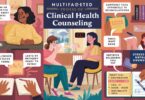Section 1: The Vital Importance of Selecting the Perfect Doctor
Doctors are some of the most influential people in our society. They are not just medical practitioners; they are your allies in achieving optimal health and wellness. Choosing the right doctor is paramount as it can profoundly impact your quality of life. With a trusted physician by your side, you can rest assured knowing that you will receive accurate diagnoses, effective treatments, and personalized care tailored to your specific needs.
On the other hand, selecting the wrong doctor can lead to detrimental outcomes. Misdiagnoses or delayed diagnoses may prolong suffering or exacerbate existing conditions. Inadequate treatment plans could impede recovery and diminish your overall well-being.
A crucial factor in finding the perfect doctor is ensuring they comprehend your individual health history. This understanding enables them to make informed decisions about your care while considering any pre-existing conditions or potential medication interactions.
To sum up, selecting the ideal doctor transcends mere medical expertise; it involves choosing a healthcare provider who sees you as an individual and prioritizes your well-being above all else.
Section 2: Identifying Your Health Needs
As a healthcare professional, I recognize the significance of selecting the ideal medical provider in safeguarding your well-being. Your doctor is not just a person you see when you’re feeling unwell; they are your ally in attaining peak health.
1. The Significance of a Doctor in Preserving Health and Wellness
Doctors play a crucial role in delivering medical care and treatment for various illnesses and diseases. They are highly trained professionals with extensive knowledge of medicine and healthcare practices.
2. Ramifications of Not Having an Excellent Doctor
Not having an excellent doctor can have detrimental effects on your health. Without proper medical guidance, you may overlook essential preventive measures like vaccinations or screenings for early disease detection.
3. Importance of Having a Doctor Who Is Familiar with Your Health History
Having a doctor who comprehends your individual health history is vital for personalized care. They will be knowledgeable about any pre-existing conditions, allergies, or medications you take, enabling them to make informed decisions regarding your treatment plan.
By selecting the right doctor, you can ensure that you receive comprehensive care tailored to meet your specific needs. Let’s now proceed to section 3, where we’ll delve into effective ways to identify your own health requirements.
Section 3: Researching Potential Doctors
As a medical professional, I know firsthand the importance of researching potential doctors to ensure you receive quality care that aligns with your preferences. Here are some expert tips on how to effectively find the best doctor for you:
1. Online Reviews
Begin by checking online reviews from patients on platforms like Healthgrades, RateMDs, and Zocdoc. These reviews offer valuable insights into past patient experiences. Look for trends in feedback and consider both positive and negative comments.
2. Credentials and Experience
When researching doctors, review their credentials and experience. Check if they are board-certified in their specialty or hold additional certifications relevant to your health concerns. Also, assess their years of practice and expertise in treating conditions similar to yours.
3. Professional Associations
Membership in reputable professional associations demonstrates a doctor’s commitment to staying current with advancements in medicine. Look for affiliations with organizations such as the American Medical Association (AMA) or specialty-specific groups.
4. Referrals from Trusted Sources
Seek recommendations from trusted sources like friends, family members, or other healthcare professionals who have had positive experiences with specific doctors.
5. Hospital Affiliations
Consider where the doctor has hospital privileges or which medical center they are affiliated with as this can impact access to specialized care options.
6. Insurance Compatibility
Ensure that the doctor accepts your insurance plan or participates in your preferred network for smooth billing processes and reduced out-of-pocket costs.
When researching potential doctors, take note of common themes across various sources, differentiate between personal opinions and factual information, evaluate both positive aspects and any warning signs, and keep an open mind while exploring multiple options before making a final decision.
Thorough research will help you feel confident about choosing a doctor who meets your needs effectively, leading to high-quality healthcare tailored just for you! Remember, investing time into finding the right physician is an investment in your overall well-being!
Section 4: Evaluating Doctor-Patient Communication
Having worked in the medical field, I know firsthand the critical role that effective communication plays in delivering top-notch healthcare. When it comes to selecting a doctor, assessing their communication skills is key. Strong communication between doctors and patients leads to improved healthcare outcomes and ensures that your needs are addressed.
Here are some key factors to consider when evaluating a doctor’s communication abilities:
1. Active Listening
A quality doctor will listen attentively to your concerns without interruptions or rushing. They should make you feel heard and understood.
2. Empathy
Seek out a doctor who demonstrates empathy towards your situation. They should be able to empathize with you and understand the emotional impact of your health issues.
3. Clear Explanation
A skilled communicator will break down complex medical jargon into simple terms, ensuring that you grasp your diagnosis, treatment options, and any associated risks.
4. Respectful Demeanor
Your chosen physician should treat you with respect at all times, regardless of age, gender, or background. Mutual respect builds trust and strengthens the patient-doctor relationship.
5. Openness to Questions
An effective communicator welcomes questions from patients and takes the time to provide thorough answers. They value collaborative decision-making and involve you in creating a personalized treatment plan.
Remember that effective communication requires active engagement from both parties – the doctor as well as the patient. By prioritizing strong communication skills when choosing a provider, you can rest assured knowing that you’ll receive individualized care tailored specifically to your needs while feeling supported throughout your healthcare journey.
Section 5: Considering Logistics
Practical considerations play a significant role in choosing the perfect doctor. These factors can greatly impact your overall experience and the quality of care you receive. Here are some key points to keep in mind:
1. Location
The location of your doctor’s office is crucial. It should be easily accessible, whether near your home or workplace. This will make scheduling appointments and reaching the office in emergencies much simpler.
2. Office Hours
Take note of potential doctors’ office hours. Make sure their availability aligns with your schedule and inquire about extended hours or weekend appointments if needed.
3. Insurance Compatibility
Ensure that the doctor accepts your health insurance plan by contacting both their office and your provider for coverage details before making a decision.
4. Communication Preferences
Consider how you prefer to communicate with healthcare providers – via phone calls, emails, or patient portals – and check if the doctor accommodates those preferences.
5. Support Staff
Pay attention not only to the doctor but also their support staff, including nurses and receptionists. A friendly and efficient team can enhance your healthcare experience significantly.
6. Specialized Services
If you have specific medical needs or conditions, ask about any specialized services offered by potential doctors tailored to those needs.
7. Cultural Sensitivity
Cultural sensitivity is essential for effective communication between patients from diverse backgrounds and doctors who understand their unique cultural perspectives on health issues.
While these logistical considerations may seem minor compared to other aspects when choosing a doctor, they play a significant role in establishing a strong foundation for an effective doctor-patient relationship. By carefully considering these logistics alongside other factors discussed earlier in this guide – such as researching potential doctors’ credentials and evaluating their communication skills – you can confidently make an informed decision that aligns with your healthcare needs and preferences.
Remember, finding the right doctor is crucial for maintaining good health and receiving quality care; take time to thoroughly evaluate all aspects of potential doctors before making a final decision.
Section 6: Making the Final Decision
When embarking on the journey to find the perfect doctor, it’s crucial not to overlook the logistical aspects that can greatly impact your overall healthcare experience. Here are some key points to keep in mind:
1. Convenient Location
Opting for a doctor with an office close to your home or workplace is paramount. This ensures easy access for appointments and timely medical care whenever necessary.
2. Flexible Office Hours
Take note of potential doctors’ office hours and see if they align with your own schedule. Extended hours or weekend availability can be a game-changer for those leading busy lives.
3. Insurance Compatibility
Before finalizing your decision, verify whether the doctor accepts your health insurance plan by reaching out to both their office and your provider. Understanding coverage details, copayments, and any limitations on specialists or treatments is essential.
4. Communication Preferences
Assess how you prefer interacting with healthcare professionals—whether through face-to-face consultations, phone calls, emails, or virtual visits like video conferences—and select a doctor who caters to these preferences.
5. Language and Cultural Sensitivity
For non-native English speakers or individuals valuing cultural competence, seek out doctors proficient in multiple languages or experienced in working with diverse communities.
6. Hospital Connections
Investigate which hospitals potential doctors are affiliated with as this may influence where they admit patients for specialized procedures or surgeries.
By considering these logistical factors thoughtfully, you pave the way for a positive doctor-patient relationship and seamless access to healthcare services when most needed.








Leave a Comment